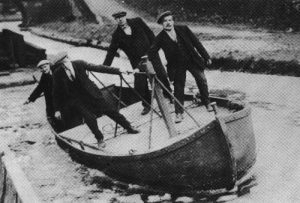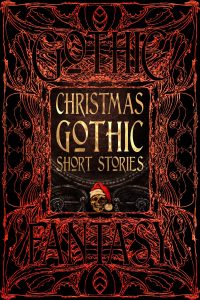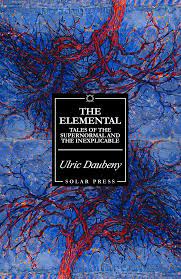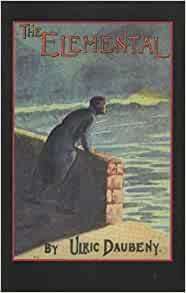Today, for your consideration during idle moments, we offer the full text of another of JLG’s stories of the strange and supernatural at this time of year, ‘The Heron in Winter’, to read here online or download as a pdf. Set in 1907, this tale concerns the Edwardian intelligence officer Redvers Blake, who is ordered to solve a mystery concerning the canals which serve the great mills of the North…
If you would simply like a free download to read later on some dark and infernal device, click below:
THE HERON IN WINTER
by John Linwood Grant
It had been an excellent dinner, the more so because none of the diners – indifferent cooks themselves – had been involved in its preparation. O’Hanrahan, the Irishman who acted as major domo to the household, had prepared and served the entire meal, and would accept no help with the clearing away of the remains.
“Will you join us for brandy, O’Hanrahan?”
“I’ve no head for brandy, nor for your sort of tales, Mr Dodgson.” The Irishman considered the half-empty soup tureen in his large hands. “And sure now, isn’t that a bottle of porter in the kitchen, calling out to me?”
Dodgson hid his smile. “I do believe so. Well, you know where we are.”
He led the others through into the small dimly-lit study. There were only three of them that night – Dodgson, his colleague Miss Jessop, and their occasional guest, Lieutenant Redvers Blake.
“A snort, Redvers?”
The young officer ran gloved hands along a bookshelf, his eyes drawn to titles which made little sense to him. These were books he would not care to touch, not with his bare fingers.
“I will, Henry. Be generous with the soda.”
Settled in leather armchairs, the diners entered that awkward comfort of those who have known each other for some time, but who cannot be sure of what any one of them might say. All three took slim cigarettes from the case which Dodgson handed round; matches scraped, and brief flares disturbed the darkened corners of the room.
Dodgson, a broad-shouldered man of almost O’Hanrahan’s proportions, was clearly the most relaxed; pale, slim Miss Jessop the least at ease. Her long fingers brushed the cameo at her throat, ignoring the glass of brandy by her side.
“You carry something with you, Blake,” she said.
“Only d-d-death, as usual.” The lieutenant spoke without any particular emphasis, without emotion. Winter rain beat on the window panes behind him, muffled by heavy drapes.
“Your work with Special Branch?” Dodgson looked interested.
“No. A matter of m-m-mills, and uniforms; of ordinary lives. This new B-b-balkans affair, however…”
But neither Dodgson nor Miss Jessop would be diverted.
“The story, in return for dinner.” Dodgson insisted. “You know that’s the arrangement here at Cheyne Walk, an arrangement set in stone. You can be what you must be outside these walls, but here, we follow the old ways.”
Blake smoothed his slim moustache with one finger; neither of the other two could see if he smiled or frowned beneath the gesture.
“Very well.”
And so between brandies and cigarettes, speaking crisply above the hiss of the gas-lights, he paid the toll for his meal…
*****
You know that there is a meanness and brutality to much of what I do (began Blake), and some tales I would never tell you. This one, however… you must judge for yourselves.
Early last week I received orders that I was to head up Manchester way, and from there to make directly for an establishment belonging to the Rochdale Canal Company, somewhere out in the wilds. The company had begged Whitehall’s assistance, and what Whitehall had chosen to send was, well, me.
I asked why, of course. Were we talking insurrection, agents of foreign powers, Bolsheviks – or perhaps even Fenians? No, came the curt response. Simply… difficulties. I was told to wear full uniform, and that a canal company man, Mr Charles Edgerton, would explain more when I got there. Orders were orders, so I packed a bag, and did as I was told.
The inclement weather down here at the moment is nothing compared to the winter that the North has been enduring. The train was lashed with sleet as it sped towards Manchester, and once in that city I had the devil of a job to make my way to my destination – an isolated spot near Todmorden. A motor-cab, skidding on two inches of packed snow, finally managed to get me there later that same afternoon.
I’m not a literary man like you, Dodgson, but let me see…
Picture a landscape of hillsides, almost bare of trees and bleak with snow; villages of grey native stone huddled in valley bottoms, the occasional rearing chimney of a mill or factory, like dead fingers pointing to the heavens. And a building, a badly-wrought brick building set on its own by the canal-side – a toll station and centre of operations for barge traffic. A friendless place which squatted by a basin crammed with idle, canvas-covered barges.
That was Lydgate Stop House, my temporary assignment, and where I was given into the care of said Mr Edgerton, a damp, nervous man in his fifties.
“Lieutenant Blake, from London,” I said, stamping the snow off my boots in his office, “As requested – but I d-d-don’t know why.”
At least the fire was built high. The room smelled of mould and scorched toast.
“They… they didn’t tell you?” Edgerton took a kettle from the stove, and scalded himself filling a large cracked teapot. “Oh dear me.”
The milk was almost off, but the tea was welcome enough. I sipped, and waited.
“We… er, we have a problem with Low Hawnsey Cut,” he managed at last.
“N-n-never heard of it.”
Ah, how I hate these tales within tales. Still, I’ll give you the gist.
The company had an antique ice-breaking barge, Heron, for when such icy circumstances gripped the network of navigations. Thus, when the hard frost set in, Heron was manned by company men and local workers, and sent to open up the seven mile cut to somewhere called Cochrane’s Mill.
The mill lay in a deep fold of the Pennines, and the waterway in question, Low Hawnsey Cut, was the main artery to the mill – but the cut was frozen solid.
“Our problem is the… ice-breaking crew, Lieutenant Blake,” he said. “They… what with the… body, you see?”
He was a man of many pauses; I was a man without a clue. I suggested that he be succinct, before I took myself back to my cramped but more congenial office at Whitehall.
“The Heron started from the basin, here…” said the company man, “And made good progress, until…”
“Until they found a b-b-body?” I suggested, hoping to speed him up. “A corpse in the canal?”
He paled, which was difficult with a man already so wan.
“The crew… saw a body in the water. This was yesterday. They had covered almost three miles, the horses were tired, and they… the tiller-man shouted that there was something… someone… in the water, by the patch they had broken moments before.
“Naturally, men rushed to see, and called to the lengthsmen who were on the banks… they have long rakes, you see, to haul sheets of ice and flotsam to the sides. ‘A woman!’ was the cry, and rakes dipped from Heron and the canal bank…”
“They hauled her out, presumably?”
“There was… nothing to haul. The rakes went through the… body, whatever it was. It drifted past the boat, they say, and then… was gone. Vanished. The men would go no further.” Edgerton swirled the dregs of tea in his cup. “Heron lay near a winding hole on the cut, where she could be turned, when the incident occurred, so they brought her back here to the Stop House, against their instructions. Since then, they talk of spectres, and hauntings, and all manner of unhealthy things… yet the mill…”
“What’s so important about this mill?” I pressed him.
Edgerton explained that Cochrane’s Mill was a leading supplier of serge, under contract to the War Office. The barges in the canal basin outside were jammed with raw materials for the mill, and given the thick ice, neither those materials nor the finished serge could go anywhere. Bargees were angry; tolls were being lost, and the factories which made up the uniforms in Manchester had their own complaints.
“I can’t… can’t seem to get them to take Heron out again, lieutenant.”
My presence now made sense. I was there to bluster, to order, to put steel into these people, to get things moving – and to deal with any talk of ‘sightings’. Send that Blake fellow, some idle official must have muttered. ‘He has a taste for oddities and nonsense.’
I nodded. “So – water-weed, old rags that the rakes could not catch; too many early b-b-beers, delusions brought on by this bitter cold. I suppose that I should speak to your men.”
“You don’t believe in… ghosts, lieutenant?”
“I d-d-don’t believe in anything, Mr Edgerton.”
Looking slightly puzzled, the man led me out and round to the rear of the building, where eight or nine men sheltered by some stables, oiling various implements, mending ropes, and drinking mugs of tea from a battered urn.
“Blackwood, this is Lieutenant Redvers Blake, of the –”
“North Surreys.” Which was all they needed to know.
“Ah, yes. He is here to consider our little… problem.”
A thin man with one shoulder higher than the other stood up. Whether his posture was from accident or from birth, I couldn’t tell, but it tilted his long head perpetually to one side. His eyes were sharp enough, though.
“Ay up. They goin’ to shoot us, if we don’t work Heron, then?”
I walked closer. “W-w-would that help? I do have my revolver with me.” I spoke affably enough, and patted the side of greatcoat.
Several of the men gave out uncertain laughs; others scowled.
“Mr B-b-blackwood, I’m here to get the cut working again. If there’s a way to do so which involves neither guns nor p-p-priests, I’m open to it.”
Blackwood squinted at me. “We saw what we saw. Ned, Harry, Joseph and all the rest, even them as leads the hosses. There were a woman in the watter, and then there weren’t.”
“A woman? Did you recognise her?”
The fact that I didn’t immediately dismiss his words seemed to throw him.
“Recognise, sir? There were no… face, like, nobbut a blur. She had mebbe a dress, shawl, it were hard to tell. And summat white, like a flower, pinned to her.” He touched the lapel of his grubby jacket. “’Bout here.”
It was an odd detail. The others agreed, though not everyone had seen the flower or broach, whatever it was. These men had had time to confer, but there were none of those typical ‘rehearsed’ lines to be heard. Most said it had been a woman; almost all thought that the body had been drifting along in the same direction as the weak current, which was some product, beyond me, of lock gates, sluices and the reservoirs above Cochrane’s Mill.
“When would you take Heron out again, n-n-normally?”
Blackwood considered the grim, snow-speckled afternoon which gripped the toll house, the basin, and the low hills around it.
“Should mebbe be out now,” he admitted. “But the light’s goin’, and the hosses aren’t ready.”
I had no wish to remain up North any longer than needed. “Mr Edgerton, Mr Blackwood. We’ll sail – or whatever you canal p-p-people call it – first thing tomorrow. I’ll be on the boat.”
“But –”
That earned them what might be called an ‘army stare’. “And I hope you have a cot ready for me somewhere in this Stop House of yours.”
I was given a room cluttered with dusty ledgers and unidentifiable tools; Edgerton was sleeping in the toll-keeper’s bedroom, and the toll-keeper in the office downstairs.
Supper was a fatty chop and a slurry of heavily-boiled peas, peppered with attempts by Edgerton to tell me things I didn’t really need to know.
“We rely, you see, lieutenant, on the steady flow, yes, the steady flow of industry… each broken link costs everyone. Our investors, the bargees and the families, who have to eat; the mill-workers who must be on short hours until goods move in and out… you understand?”
Low Hawnsey Cut did have to be opened, it seemed.
*****
I slept badly; there were missing tiles on the Stop House roof, with the resultant whistle of icy blasts across my room throughout the night. At first light I abandoned my cot and shaved in a bowl of cold water. There was a hot brew waiting down below, accompanied by cheese and stale bread buns. ‘Baps’, the company man called them.
“They have Heron ready,” said an unshaven Edgerton. “Come, I’ll take you. I don’t… participate myself, of course.”
Of course.
We made our way over frozen ground, away from the basin and the double lock which led into the Rochdale Canal, heading north-west for the first stretch of Low Hawnsey Cut itself. It was an unromantic stretch of grey water, stone-lipped and bordered by no more than the occasional stunted hawthorn, their leafless forms bent over the tow-path as if they sought to reclaim it. I was surprised to see that a team of six horses stamped and blew clouds of steam by the water, already harnessed to… an odd boat indeed.
Heron was a wooden barge of forty foot or more, maybe eight wide, with a great iron rail running down the length of it, fixed with metal stanchions to stand about three foot above the planked deck.
“She has, you see…” panted Edgerton, clearly not a fit man, “Protective plates bolted to her sides. As the horses pull, the men grip the rail… and roll the barge, first one way then the other. This and the forward motion shatter the ice.”
Blackwood and four others had turned up to man the icebreaker, six less than her normal crew, I was told – and those few stalwarts hardly looked cheerful. Their faces fell further when a large heavily-wrapped woman came striding down towards us.
“Alma.” Blackwood reddened. “Get ‘ome.”
The woman glanced at Edgerton and myself, sniffed and turned to Blackwood.
“To hell wi’ thee, Layton Blackwood.” She strode across the gangplank, onto the barge, and took up a position at the rail. “If tha cannot get t’men to do it, someone must.”
“His wife.” Edgerton dabbed at his nose with a handkerchief. “A…. lively woman. Well, Blackwood will be on the tiller, and if you stand there with him, you’ll see the way we work.”
A mutter or two, and the rest of the crew was in place. Alma Blackwood was a head taller than the men, and as she rolled up her sleeves, I saw muscle enough to drop a donkey in those arms. Her husband clearly didn’t wish to discuss her presence, but called out for the ‘hosses’ to begin their steady plod up the tow-path.
The wind had dropped, leaving a chill mist clinging to everything, but we were mercifully free of yesterday’s snow or sleet. I braced myself at the stern, careful not to be in the way of the tiller-man, and Heron shuddered as the ropes went taut and she began to move.
“Old, solid oak, and iron plates,” said Blackwood. “She’ll break an inch, mebbe more.”
I could see fragments of ice still clinging to the banks of the cut, glinting whenever the weak morning sun broke through, but the way ahead showed only fragile skins reaching out from those fragments. Occasionally a jumble of dead leaves and detritus had frozen into a block by the tow-path. Stone markers on the bank showed each half mile; the horses hauled, silent in the mist except for the thump of their hooves. We were an island of quiet, no talk between those on the rail; most of them had pipes out, and were staring down at the water as they smoked.
“How much farther?” I found myself speaking in a hushed tone.
“Less’n a mile,” said Blackwood, hunched over the tiller. “Heron’s a heavy bugger, with all that iron, and the best hosses are on the Rochdale. We’ll get… there.”
There.
Where they had seen the apparition, if such it was; where they had stopped the barge, and baulked at going on.
Heron surged, slowed, surged, as the lads at the horses showed their jitters, not regulating the pull as well as they should.
“Steady, there!” I call over. “Nice and steady.”
Blackwood accepted a cigarette from me.
“The army must want them uniforms bad.”
“D-d-doubt the army cares that much. What it doesn’t want is canal companies and m-m-mill owners bothering it.”
Which earned me a thin smile.
“You a regular, then, lieutenant? Seen action.”
They always want to know, and what they want to know was: Have I killed anyone? The Fenians ask it, when cornered in dank cellars; the pacifists ask it at polite dinners. Children ask it, and old men always wonder…
“I’ve seen enough.” I said, and turned away.
We hit thin ice ten minutes later, but that meant nothing to Heron’s bows. Some twenty yards ahead I could now see the untouched sheet which blocked the cut. The men looked nervous. I slipped off one glove, and gripped the rail at the stern, reaching into the barge with my damnable, unwanted gift, listening…
Nothing. Scarred timbers, iron, years of duty, but Heron was what she seemed. I could sense no malice, no unnatural influence within her.
Blackwood’s eyes were fixed on the others.
“Ready, lads. You’ll want to hang on there, lieutenant.”
Edgerton’s explanation hadn’t prepared me for the moment of action. As the barge came close to unbroken ice, the tiller-man set up a call – a canal shanty, I suppose you’d call it.
“Hold, and…
Those at the long rail tensed themselves, boots scraping on the deck.
“Onside! Offside! Let her run, and… Onside! Offside!”
With the first word of command, the crew – without letting go of the main rail – threw their weight in the direction of the tow-path, and with the second, lurched towards the other side.
“Onside! Offside!”
Heron shifted with them, rolling in the water, and hit the thick ice like a slow, twisting bullet. A great grinding and cracking sound arose about us as the ice-sheet splintered; the timbers of the barge moaned, but held.
Fascinated, I watched as the frozen surface of the canal shattered, throwing up inch-thick plates of ice and a spray of ugly water. Men who had followed the tow-horses, willing to work as long as they didn’t have to be on the barge, unshouldered rakes with clawed tines and dragged the broken ice to the banks, hauling some slabs out of the water altogether.
It was practised, organised.
“Onside! Offside! And let her run, me bullies!”
I threw off my greatcoat, and went to the rail, next to Alma Blackwood.
“You object, madam?”
Dark eyes narrowed. “Hold t’rail tight, lad. I’m not fishing thee out.”
This was work. All had to time their movements perfectly, and to do so gripping a freezing iron rail, with wet planks beneath us. I thanked my heavy army boots for joining me, and I cursed my arms, which were aching after only ten minutes of lurching and wrenching.
“Onside! Offside! And… Lord, look!”
It wasn’t difficult to spot what should not have been there – a shadow, emerging from under the ice ahead. Not a woman this time, but possibly a child.
The body was floating a few inches below the surface to our larboard. Offside, as Blackwood would have put it. I let go the rail, and went forward, picking up one of the long rakes on the deck.
This child – a boy, I thought, maybe eleven or twelve years old – drifted face-up in the cut, but the face was wrong. The eyes, the mouth, were smudges, the whole head indistinct; likewise, the drab clothes were vague, as if seen through muslin.
I dipped the rake, but already knew what would happen – the curved tines passed through the apparition without resistance.
Worse for the mood of Heron’s crew, I was not the only one who could see that there were more such dark blurs, slipping out from under the ice before us…
“Steady!” I snapped, hearing alarmed mutterings and curses behind me. “There’s n-n-no harm in them.”
The horses had been stopped; Heron was barely moving. The mist had thinned, but I could see dark, heavy clouds gathering. More snow. For a brief moment every living eye was on me – the army man, stiff, expressionless in his wet uniform. These are the times I hate, the times I use. Depressing, how men will follow a uniform into peril, however stupid or venal the wearer.
“Double wages.” I stared round at the worried faces. “We b-b-break another hundred yards or so, to see whatever has been laid out for us to see. D-d-double wages for today.”
I had no authority for this, but could not see the pale, worried Edgerton denying me.
“I’ll be on the rail with you,” I reminded them. “B-b-but they’ll not give me a brass farthing more for it. Pity the poor bloody soldier.”
Alma Blackwood responded with a snort of amusement, which broke the mood. “Hunnert yards, aye. I’m game.”
“Alma –” Her husband fingered the tiller, hesitant. She was shaming them, as she had done when she boarded the barge.
I clapped my gloved hands together. “Settled, then. Whatever these are – lost souls or echoes – they can’t hurt us.”
Which may have been wishful thinking, but suited the moment.
“Echoes?” said the big woman. “Echoes of what?”
“People who’ve d-d-drowned here over the years?” I had no idea, in truth. “Memories?”
The next man along shivered, and I decided it was best not to explore the matter further at that time.
“Mr Blackwood?”
“Aye – I s’ppose.”
He called out to those who were leading the horses, cursed the lengthsmen for slacking in their task of dragging broken ice to the sides, and the barge began to move forward again. Onside, offside, and into the next slab with a crunch, and a crack like a rifle being fired. Fault-lines shot across the surface, and Heron made another few yards, sheet-ice breaking into manageable chunks for the rakes.
“Cut’s nobbut two year old,” said Mrs Blackwood as we lurched to starboard with the rest. “Meks no sense there’d be s’many drowned, like.”
“We’ll see.”
It was not a sight that inspired enthusiasm in me, I admit. As the ice shattered, those dim forms floated towards us with a painful slowness, and no one could be immune to their presence. They did at first seem like rags and water-weeds from a distance, but as we closed, they could only be visions of people. Boys, perhaps also girls, women in long skirts and shawls, a man in working clothes – but the hands and faces indistinct, blurred. I knew there was no point in using the rake again, or seeking any physical contact – and what sensitivity has been forced on me is useless without touch.
“D-d-do any of you,” I said, in a loud clear voice, “Know these people? Can you tell me anything about who they might be?”
The crew peered into the water with reluctance.
“Them’s the dead.” A thin, red-haired man on the other side of the rail crossed himself with his free hand. “The dead, come t’warn us of oor sins.”
“Bloody funny way o’ doin’ it,” said Mrs Blackwood. I was warming to her. She had a broad face, a broad accent and a bluntness which I could appreciate.
My gaze was on the water; as the apparitions passed Heron, I saw that they grew more tenuous, as if dissolving, until nothing could be seen of them.
Snow had begun to fall, and given the mood of those around me, I could see little point in continuing. I understood that Cochrane’s Mill was only three miles off, where the cut curved around a spur of scree-marred hill.
Might as well have been fifty miles.
“Have the team unhitched, Blackwood, there’s a g-g-good chap. I think we’re done for today.”
There was no way to turn Heron around at this spot, so she was tied up. Men and horses made their way back, the men moody and quiet, the horses content enough that they would soon be stabled, and at their feed.
When we reached Lydgate Stop House, Edgerton came out, and saw plain enough how people were going into huddles, making occasional gestures towards me.
“It happened… again?” He brushed snow from his cheek.
“Worse this t-t-time.” I followed him into the office and set myself to steam by the fire. It was easy enough to give him a summary of the day’s progress.
“Will they go out tomorrow?”
“With me, p-p-possibly. But I’ve something to do, first. I need a riding horse, and a local guide. Where does Alma B-b-blackwood work, normally?”
“She oversees some of the looms at Cochrane’s Mill. Her husband knows the area, though…”
“Better that it’s her.”
He huffed and sighed, but made arrangements.
By four in the afternoon, with constant light snow, I was back on the tow-path, a skittish mare under me and Alma Blackwood striding alongside. She didn’t ride, laughed at the idea.
“Ah walk God’s earth, like it were meant. They call this God’s Own Country, did tha know, Lieutenant Blake? Meant for hard women, frit of nowt.”
“My name’s Redvers. You m-m-might as well use it.”
“Alma.”
“So what are the men saying?” I edged the mare around an icicle-tipped hawthorn.
“Nowt and summat. ‘Bad fortune for all’, and ‘Needs t’vicar and his book-larnin’,’ that sort o’ talk. They’re not sure, but seein’ tha work t’boat fair took them. None o’ the bosses would ha’ done that.”
We came to the section where Heron was moored, lonely by the bank. Faint ripples on the open water; a cold gleam to the ice. None of the earlier phantoms remained, but there was yet another dark figure in the water, drifting slowly as before. I dismounted.
“Are you game to look, Alma?”
She spat out chewing tobacco, and followed me to the edge, which put us no more than five feet from the ‘apparition’. It was clearly female – and the face was more distinct this time. A high forehead, thick eyebrows… I fancied the eyes were closed, but that was harder to discern. Alma sucked in a breath.
“Hettie Cowton, ah’d swear. See, she’s gotten that red shawl on.”
“When d-d-did she die?”
“She nivver did. Ah saw her this morn, fit as anything, afore I came down. On her way to t’mill. Works t’looms, she does. Sithee, cut’s froze over solid to Cochrane’s, so how’d she get down ‘ere? Meks no sense.”
It did not.
“A red shawl, a white flower. Your husband saw the f-f-first…”
“A white rose, he were thinking, as he said to me. Tha knows, like t’flower o’Yorkshire.” She turned from the water. “Lieutenant… Redvers, then. Queer sort o’ name. It dunt seem like tha’s ower fussed by this. Tha’s seen ghosts and t’like afore?”
We regarded each other, whilst soft flakes gathered on our shoulders. Two different worlds, tight-wrapped in the cold – the mill woman, and the man who fed the hangman.
“I’ve seen worse. It’s what they p-p-pay me for.”
She nodded.
“Our Uncle Alf ‘ad a stammer, when ‘e went down the mines.”
“Did he get over it?”
“Not before t’shaft collapsed and took ‘is ‘ead off. Us didn’t notice it s’much after that.” She laughed, and trudged on towards the mill.
I wondered if she’d ever considered joining the army. We could have used men like her.
*****
Water made industry. Alma explained it as we rounded the scree and came in sight of Cochrane’s Mill. Two small reservoirs fed the mill, which thrived on steam from its own boilers, and the flow, polluted with washings from the textile sheds, went into a basin directly by the mill. The basin, now iced-up, then fed the cut which ran to the Rochdale Canal.
There isn’t much to tell you about the mill. A massive four storey building, facing the water as I said, and an engine house to the back and centre, like the servants’ wing of a mansion, with a two hundred and fifty foot chimney rearing above all. Pale brick, with the occasional terracotta moulding, set against gloomy hillsides which harboured rows of small cottages. It was a dour land, making dour folk.
“Come wi’ me.”
Alma took me through broad, open gates to one side, and into the behemoth. I followed her up flights of steep stone steps to the second floor, where mechanical looms clacked across the length of the floor, making the most abominable noise. Ropes, pulleys and beams; the smell of sweat and chemicals.
“There!” she said, pointing to a loom-worker with a distinctive crimson shawl around her shoulders. “That’s Hettie Cowton.”
The woman at the loom turned her head for a moment, and yes, the likeness was unmistakable, the clothes identical. We had seen the semblance of a living woman drifting as if dead in the icy waters of the cut, where she could not be.
“How do, Alma.” A man in a worn, over-tight suit sauntered over. “Thought you were down at Lydgate Stop House.”
“Ah’m to help this gentleman, the maisters say.”
“Lieutenant Blake, N-n-north Surreys,” I said. “Whitehall send me about the hold-ups with the serge.”
He shook my hand. “Bert Gault, foreman for Cochrane’s. Aye, it’s a rum do. Hear some lass or summat drowned in the cut, spooked the canal men.”
“Something like that.” I imagined that this afternoon’s news would spread like wildfire once the men around the Stop House went back to their homes.
“How’s it going with the cut, sir?” asked Gault.
“Can’t say, as yet. Three miles still frozen. It’ll be p-p-pack mules between here and clear water, at this rate.”
He took this idea more seriously than I’d expected.
“Might be done, with carts and suchlike. I’ll tell the bosses, if needs must. But you’re here, so must want summat.”
“I n-n-need the feel of the place.”
He frowned. “Alma can show you round, as good as any, I suppose.”
“Much appreciated.”
In truth, I didn’t want a tour as such. I wanted to find a girl with a white rose, or a white silk flower, that sort of thing, pinned to her blouse or jacket. Was it possible that all the drowned were from this mill?
Alma knew everyone, be it for the time of day, for a word about ‘snap’ as they called the food they took at breaks, or for news of Low Hawnsey Cut. She said little about the latter. We walked the weaving and finishing floors, watched carders at their work on the raw wool; we edged away as boys ran past, carrying huge bobbins. The place was an ants’ nest built of Northern brick.
“Hang on.” We were back by the looms, and through the dusty air I saw a flash of white. I almost ran, skidding up to a young woman at a loom, much to her dismay. I would have put her at seventeen or eighteen years of age, and she wore a grubby white silk rose pinned to her lapel.
“Mister, I’ve dun nowt –”
“And there’s nowt to worry on,” said Alma, huffing up behind me. “Meggy, this ‘ere’s a gentleman wi’ t’canals.”
“I don’t mean what I says,” the girl whimpered. “I’m not reet, Alma. You know that.”
My guide caught Gault’s attention, mimed taking this girl from her place; the foreman looked to me, and nodded.
We walked to the stairwell, the three of us, and I knew there was something wrong. Meggy Whoever-she-was was frightened. Alma leaned close to me.
“She’s allus been slow, mebbe a bit touched. There’s no ‘arm in ‘er, though.” In a louder voice, she said: “Tha must tell Mr Blake ‘ere whatever is botherin’ thee.”
Soft brown eyes shifted in my direction, then to the older woman.
“I been hearing it, Alma, these last couple of days. It’s so loud, like God’s shouting at me. Like thunder, it is, in me head. I tells them ‘Summat bad’s coming,’ but they laughs at me. ‘Meggy Gaines, daft as our dog.’ They won’t listen…”
She was weeping; I hauled out a handkerchief and gave it to her.
“Like thunder?”
Meggy nodded, pulling on a length of thin blonde hair. I took her gently by one hand.
“This feeling you have – when d-d-did it start?”
“Three, four days ago, sir. But it’s me – I’m touched, like they say. Allus getting ‘feelings’, I am. Me mam hits me for it.”
I tried to smile in what I hoped was a considerate manner. “Maybe I’ll have a word with your mother about that, Meggy.”
“Go on, lass, back to tha place,” said Alma. “Not so long ‘til knockin’ off time.”
Thunder.
What was thunder? A storm coming? I am not, thank some pitiless God, a psychic, but I felt uncomfortable, ill at ease.
“Is it n-n-nonsense, what the girl says? About ‘feelings’?”
The tall woman paused, frowned. “Meggy were reet about Young Alf losin’ a leg in t’ropes, last summer, like. She said as he’d not be walkin’ again, and that were t’day afore it ‘appened. But she says all sorts…”
I was painfully aware that most so-called ‘sensitives’ relied on keen observation, co-incidence, and clever half-truths. And yet…
“Has anything changed in the last few days, Alma? Here at the mill, I mean. Or did anything happen, three or four days ago, before Heron first went out?”
She thought hard, then called Bert Gault over and asked him the same question. He had to work it over as well, chewing on an unlit pipe.
“Nowt much, sir. We’ve had a bit of trouble, like, with the looms and the carding machines – first they run too fast, then too slow. I telled the bosses as we should have engineers out, in case the boiler, or the piston fittings–”
“Take me there. Now.”
Too surprised at my tone to argue, they led me down again, and into the engine house attached to the main mill. The noise was worse than elsewhere, the hiss and clatter of great pistons; sharp bursts of steam and men yelling at each other.
“It’s a triple-expansion engine, you see –” Gault began, but I pushed him aside. Pulling the leather glove from my left hand. I pressed my bare palm to the nearest wall, and listened.
The inanimate can be sullen, unwilling to share its slow existence, but I waited, seeking some connection. My fingertips stroked the coarse surface of the bricks; Gault and Alma Blackwood watched me, perhaps just as they watched Meggy Gaines when she had ‘feelings’, and then I found it. Cochrane’s Mill spoke to me.
You understand that objects, places, have no voice, not as such. What I hear is what they have heard, felt, seen – and this building spoke of rushed construction and poor foundations, which it might have withstood. Worse, it spoke of a flaw in its beating heart, deep in the engine house. A flaw that was worsening, a fatal wound.
The building itself expected thunder, and destruction, soon…
“Clear the mill!” I yelled at Gault and Alma.
The foreman stared at me as if I were mad. “I can’t –”
My revolver slid easily from its holster, used to the work. I didn’t aim at anyone, but I showed it plainly for any who were watching the scene.
“For God’s sake, clear the mill! Get them all out!” I locked my gaze on Alma Blackwood, and she did not disappoint me.
“The whistles, Bert,” she said, urgent. “The fire whistles.”
He gaped, but then ran to the wall, where a heavy iron handle protruded from a cabinet. He pulled down hard, and somewhere outside a steam whistle shrieked, loud enough to be heard over the engine noise. Others sounded off within seconds, and I caught the thin shrill of something akin to policemen’s whistles on the floors above.
A system – at least they had a system.
My left hand was still pressed against the wall, and I could hear it coming, pain which lanced through brick and mortar, pain which would twist an iron beam like a child’s liquorice stick.
I made for the nearest way out, shouting at anyone I met to get as far away as possible.
A panicked, puzzled crowd of workers jostled down the stairwells, out into the main yard, and I urged them further away, helped by Alma.
“What is it?” she grunted, pushing confused boys aside and out of the gates. “What’s ‘appenin’?”
“You’ll know soon enough.” I saw stragglers still coming out the mill, and wondered if I could be wrong – but then I heard the thunder.
The first roll of it was apparently the sound of the boiler exploding; it felt as if the hills shook, but that was probably an echo of the blast. We ran, all of us – I grabbed a dazed girl by her waist and carried her bodily away from the mill yard; children shrieked and had to be made to hurry…
The ground definitely moved only a moment after that, for whatever carnage there had been in the engine room, it must have torn at the roots of the great chimney.
Two hundred and fifty foot of brick, cast iron and terracotta, the chimney trembled, swayed – and fell. Not lengthways, but down, the entire mass collapsing in stages into the mill’s main body, shearing through the upper floors. A cloud of dust and debris filled the air for a moment, obscuring our view…
“Dear Jesus!” gasped a man behind me.
Slowly, ever so slowly, the entire south face of the mill broke away, sliding into the frozen basin. I saw a boy scrabble at a wooden beam, screaming – and saw him fall, still screaming, into waters which churned with masonry and ice…
*****
In the quiet study, Blake lit a cigarette.
“There were two hundred and n-n-ninety three survivors,” he said, “And seventeen people crushed, killed instantly – or missing, presumed d-d-dead. Two men, eleven women, and four children.”
“Dear God,” said Dodgson.
“Meggy Gaines was amongst the dead; I found her b-b-body myself, under a shattered loom frame.”
“A damned bad business. So… the figures in the water…”
“Matched the seventeen who died, as far as I could establish afterwards. We searched the rubble as best we could, but the main building was at that time too dangerous to venture in far. Most of those killed had fallen into the basin with the collapse of the mill’s upper floors – they’re still hauling d-d-debris from the water.
“I stayed at Lydgate Stop House two more days, and took Heron out again; we opened the cut all the way, so that emergency supplies could be run directly to the communities around what was left of Cochrane’s.”
The study fell silent, apart from the rattle of rain against the window; Dodgson rose and went to lean on a bookcase, his half-empty glass in his hand.
“You’re an odd fellow, Blake.”
“Am I?”
“For heaven’s sake, had you not been there, it would have been a tragedy of terrible proportions. Your actions probably saved over two hundred people.”
Blake shrugged. “M-m-makes up for some of those I’ve killed, I suppose. You might as well give the credit to Mrs B-b-blackwood, who took it all in her stride, and made sure the alarm was sounded.”
Miss Jessop shifted in her chair. “You mentioned a red shawl on one of the figures in the water. I presume Hettie Cowton was among those who were lost.”
“She was.”
“A procession of the dead, before their deaths,” she murmured. “Ghosts of the living, headed by Meggy Gaines herself with her white rose, the first apparition they met. I wonder, did poor Meggy somehow create those images without knowing what she was doing — or did she intend to provide a warning of the disaster to come?”
“D-d-did her no good, either way” said Blake with a sour look. “P-p-perhaps it was simply what had to be.”
Thunder sounded outside, and Redvers Blake stared at the curtains, without seeing them.
“Henry, I’ll t-take a dash more of that b-b-brandy, I think,” he said. “But forget the soda, this time, old chap.”
(copyright John Linwood Grant, 2020, 2023)
2024 will see the publication of John Linwood Grant’s fourth and fifth collections of dark tales, as well as two anthologies he is editing – Alone on the Borderland: The Edwardian Weird and A Darker Continent: Strange tales of Europe at War. His most recent publication is the 80 page novella ‘A Promise of Blades’, which can be found in Sherlock Holmes and The Arcana of Madness (Crystal Lake, 2023):
ANOTHER SUPERNATURAL WINTER STORY IN A DAY OR SO…










